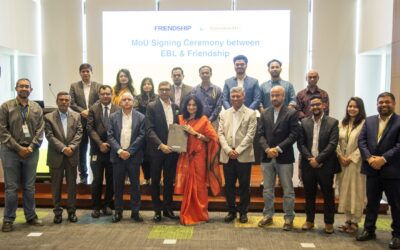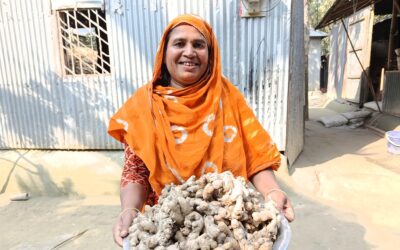Back-to-back economic shocks have triggered insularity in many economies, but in the long run there’s no alternative to global solidarity, says Runa Khan, back from WEF in Davos.
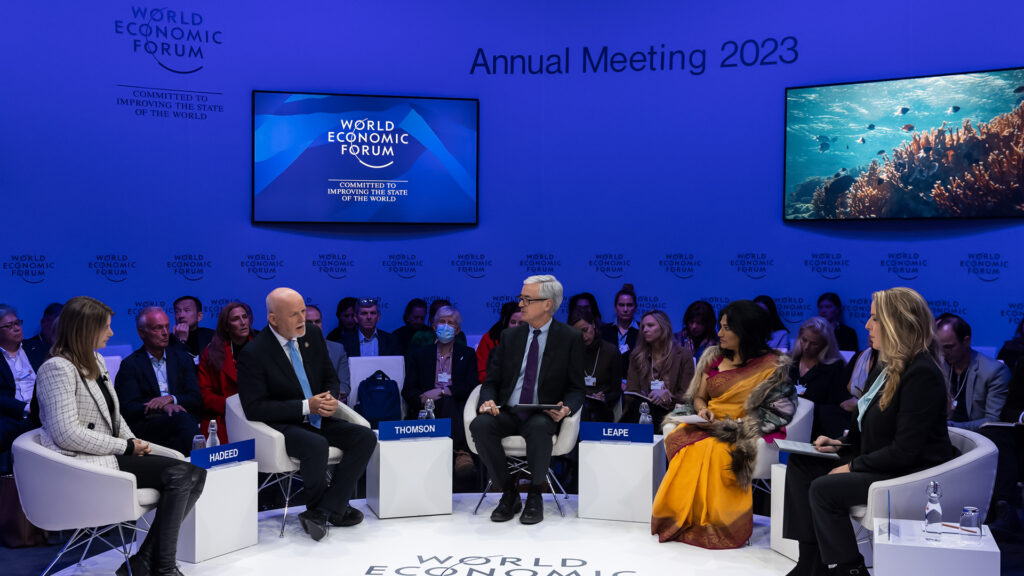
by Runa Khan
February 16, 2022
Three years ago when I was last in Davos, everyone was very optimistic about our global integration, our collective connectedness. Globalisation was paying great economic dividends. Emergency issues like the pandemic and wars were a distant consideration, though climate was an urgent issue needing to be addressed, as witnessed by Greta who was in the forefront of the WEF platforms.
However, within three years the dynamics of the world shifted. Pandemic, war, economic crises and optimism in food security became fragmented, dependencies on each other became a problem: supply chain breakages, food shortages, price hikes. Clearly the pendulum is swinging towards deglobalisation, but what does that really mean?
It is important to understand that globalisation is about more than just economics. It is about transcending mindsets which create borders—and it’s not only about international ones but also national concerns. Consider this scenario:
Out on the River Brahmaputra/Jamuna at night when it is pitch dark, I rely on my boatman to take me across the river that is over 15km broad, whose depth can range between 70 metres at one point, and half a meter at another and can flow upto 12knots. He does not need a GPS, or any electronic devices. He knows where the water is navigable, and where it is not. I know nothing. My life is in his hands. Can I honestly believe that I’m here to help him?
True globalisation is the respect we have for each other on that boat. My awareness of the fact that without his knowledge my life is worth very little in that moment. I am a person of the city, a woman of means. We are from different worlds, yet we understand each other. And that creates possibilities. We have a mutual understanding that we can make true progress when we approach each other with humility and an intention to advance together in this world. If I come into his world with an air of superiority and presumptuous knowledge, I will be totally lost on that dark swift flowing river.
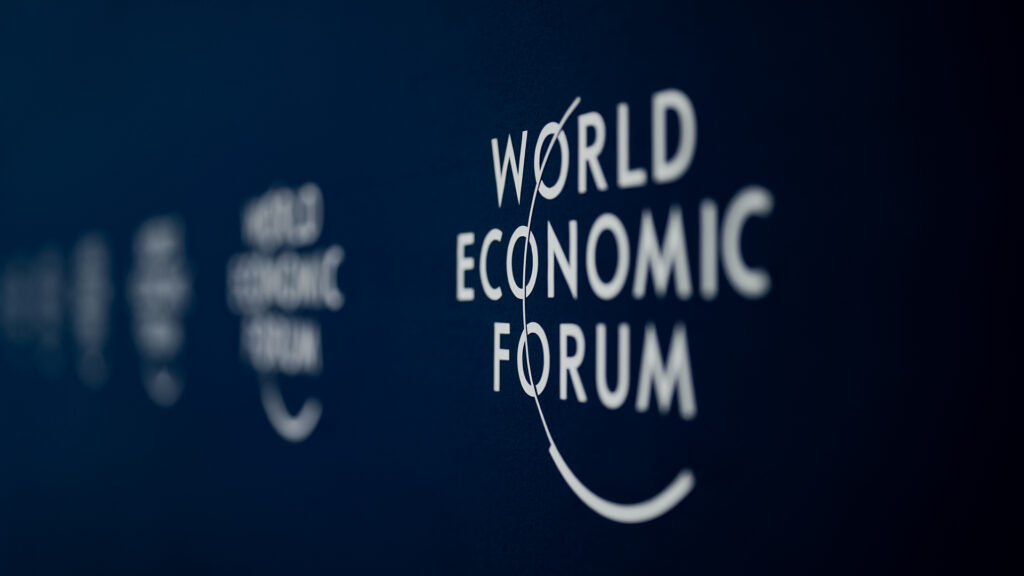
Development happens when ideas percolate together. When knowledge, art, culture, science and technology flow unimpeded by borders and dogma, mingling and growing in an environment of openness and respect. Cutting-edge innovations, tech companies and the ivory tower are all assets in development, but they are made stronger by the strength of on-the-ground and indigenous knowledge and diversity. It is a question of sharing and allowing each other the freedom of choosing to accept or not the other’s proposition. And the choice not to accept isn’t the end of globalisation. It is a step towards, for the next time.
There are times when, due to crisis, economies must try to localise, and exercise measures to protect their own. The United States Inflation Reduction Act caught a lot of criticism for its subsidies to US investments—as a barrier to the type of “free trade” favoured by the proponents of globalisation. However, other countries took it as an omen to consider protectionist measures of their own to shield local industries—and perhaps even a degree of isolationism.
In fact, most countries have taken steps to curb offshoring and keeping the money within their own economies or within ‘friend’ economies, so as to be less dependent on or vulnerable to external forces.
Localisation has other merits. It can help curb the over-indulgent use of our limited resources. Consider how localised food systems, industries and self-sufficiency compare to a system where you slaughter an animal in one place, process its meat in another, packaging it in yet another, and then finally consume it in a distant corner of the world.
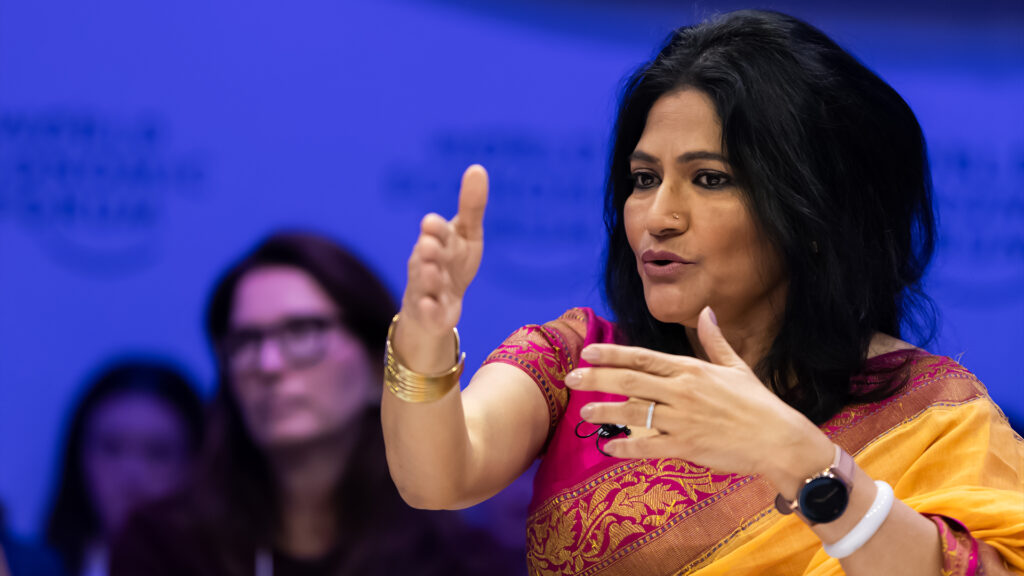
Exercising isolationism to be self-sufficient in basic requirements of our world today, and to be more respectful to the climate should be acceptable. But it must never mean isolation in terms of sharing of knowledge and science, philosophy and skills, technology and ideas and art and culture, for then humanity will regress and not be able to regrow with strength.
When I first went to WEF in 2012 in Tianjin, China, I felt it was divided by level of wealth. In this marketplace for rich nations and companies, I remember thinking, what is a social entrepreneur doing there besides being shown as a mannequin for a good cause? But each subsequent year, I am witnessing WEF’s effort to bridge the disparate worlds existing within our own planet. Even as the world moves away from globalisation, I saw progress happening in important ways at this year’s meeting in Davos. Social entrepreneurs, activists, Young Global Shapers, Young Global Leaders, were once considered fringe participants, and there has been an effort to change this. This year, there was a visible change, and we are now being respected as key participants. So, boundaries are becoming more porous.
It is true that Davos goals are not urgent priorities in today’s crisis-stricken world. But having dealt with disasters, living and working in Bangladesh, one also knows that a crisis cannot be allowed to halt actions of human continuation. Perhaps at this point in time, a conference on globalisation is not the most urgent item on the agenda of human survival. However, this year I found a softer, more integrated Davos.
We have wars and disasters happening all around us, inflation and food insecurity threatening large populations. It is more important for countries, organisations, and people to reflect perhaps insularly, ensure their own homes are stable, fix these issues within their own economies now, for the onslaught of the coming decade.
But the basic premise of globalisation—which is respect, integration and solidarity—remains, and will continue to remain an essential, for human growth and development.

